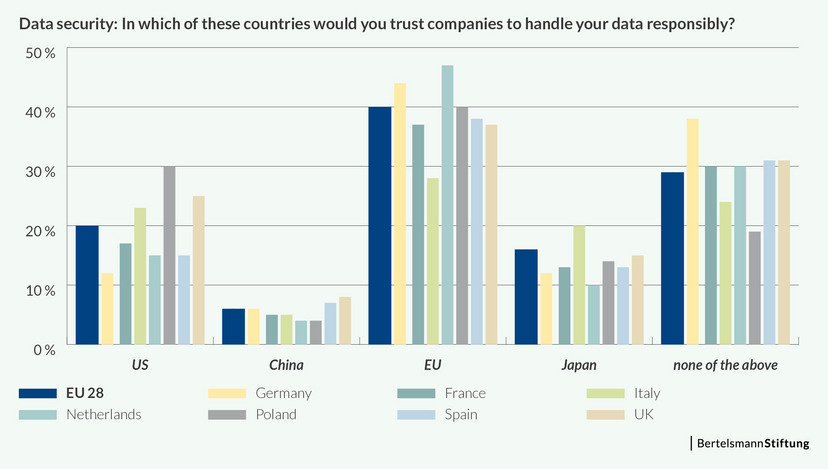Three out of four Europeans (75 percent) are concerned about the conflict between the United States and China – in Germany the figure is even 81 percent. That is one of the findings from our opinion survey in the 28 EU member states. The survey also reveals marked differences in how EU citizens perceive both superpowers. For example, approximately half of the respondents say their own country has common economic interests with both China and the US. In Germany, 58 percent say that China is economically significant for their country, an above-average result compared to other European nations. Yet when it comes to common values and political interests, the survey shows that Europeans are significantly more skeptical of China than the US.
Almost half of the respondents, 45 percent, perceive the People’s Republic mainly as a competitor; merely one-quarter view it as a partner. Only 9 percent of the respondents say that their own country has the same political interests as China or that they share the same values. In Germany, almost one-third of the respondents (32 percent) consider China a partner, while 38 percent view it primarily as a competitor. By comparison, Europeans still feel a strong affinity with the United States, with 36 percent saying they have the same political interests as the US, and almost one-quarter citing common values as a unifying element. In Germany, the figure for those who feel their country has the same political interests and values as the US lies slightly below the EU average.





